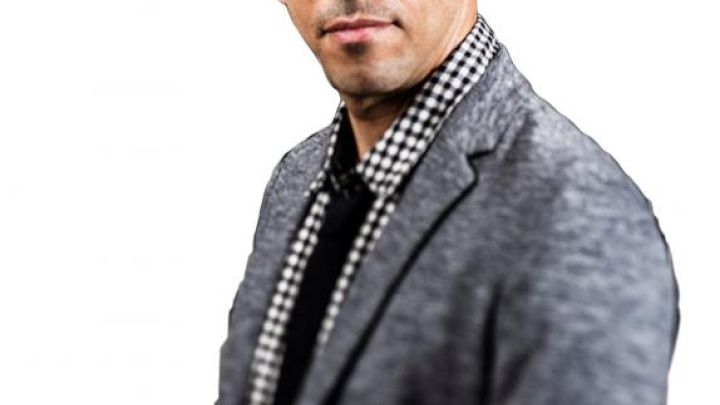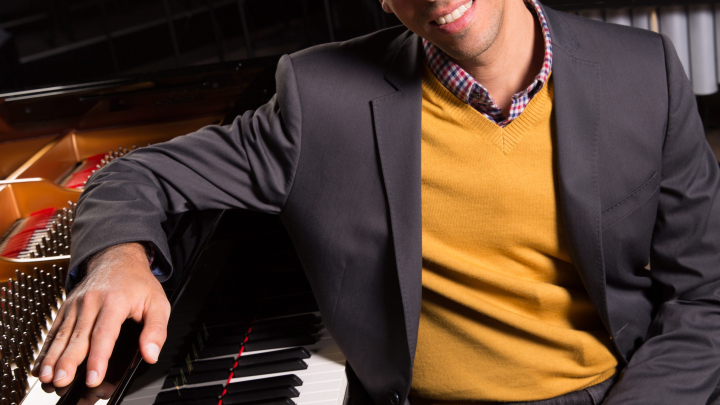Edward Simon
Lesson Feesfrom $75.00 / 30 Minutes
Promotions Available
About
My involvement with music education spans over 25 years working at some of the most highly recognized institutions such as the New England Conservatory, University of the Arts, Western Michigan University, the New School for Jazz and Contemporary Music, the Herbie Hancock Institute of Jazz (formerly the Thelonious Monk Institute of Jazz) and, most recently, the San Francisco Conservatory of Music, and the Pacific Jazz Ambassadors (formerly the Brubeck Institute). Additionally, I have taught master classes, clinics, workshops, and summer camps worldwide including the Brubeck Institute Summer Jazz Colony, Jazz Camp West, Langnau Jazz Nights, in Langnau, Switzerland, and WMF Jazz Summer School and Arts Festival in Certaldo, Italy. At these and other institutions, I have shared knowledge and expertise in a wide range of areas including piano, jazz improvisation, ensemble performance, Latin American music, and composition and have enjoyed working with and mentoring some of the most talented, aspiring young jazz musicians from all around the world. Being once an international student, I relate closely to those who come from abroad and recognize the importance of creating a welcoming and inclusive learning environment for all.
Edward Simon, a native of Venezuela, has made a name for himself over decades in America as a jazz improviser, composer-arranger, bandleader and educator, with his profile heightening in recent years as he has explored the commonalities jazz can have with the folkloric sounds of Latin America. He has served on the faculties of the New School for Jazz and Contemporary Music, City College of New York and University of the Arts. He has taught master classes and clinics at conservatories and universities around the world, including Western Michigan University where he served as Visiting Jazz Artist. He is currently on faculty at the San Francisco Conservatory of Music, the California Jazz Conservatory and is Resident Artist at the Pacific Jazz Ambassadors. Simon was honored in 1999 and in 2004 for his teaching work with a Certificate of Appreciation for Outstanding Service to Jazz Education from the International Association for Jazz Education. In 2008, thanks to a grant from the J. William Fulbright Foreign Scholarship Board and U.S. Department of State, Simon was a visiting professor at the Instituto Universitario de Estudios Musicales in Caracas, Venezuela. In 2010, he was named a Guggenheim Fellow by the John Simon Guggenheim Memorial Foundation. He became a McDowell Fellow the next year, with a residency at the prestigious McDowell Colony. Simon serves on the board of Creative Advisors for the San Francisco Contemporary Music Players.
My main objective as a jazz educator is for students at the undergraduate level to gain fundamental knowledge of the jazz tradition and culture from a historical and
theoretical perspective and to acquire fundamental instrumental skills.
The following principles and ideas about jazz form the basis of my pedagogical approach.
Jazz is a language
Much like a spoken language, we begin learning the jazz language by imitating others. As the great jazz trumpeter Clark Terry use to say, "we imitate, assimilate and
innovate." Learning a language is a three-fold process. Imitation involves deep and careful listening. Thus, the development of listening skills is essential and foundational to excellent music-making. Assimilation involves time, repetition and engaged practice. Once we have mastered the use of a language, the final step is
innovation. Innovation requires that we let go of our preconceived notions and ideas, and bring our curiosity and imagination to discover new ways of seeing/hearing/
playing.
Jazz is an aural practice
While experiencing jazz live is very important for students, the principal means for transmission is the ear. The jazz language is learned by listening, internalizing, and memorizing. Using their ears, students must learn and memorize solos by influential improvisers and strive to play them with as much accuracy as possible. Jazz is a communal experience Jazz evolved and continues to do so, through experimentation and the exchange of ideas between peers. The primary vehicle for this exchange is an ensemble. While individual practice is crucial, ultimately, the art of improvisation is learned through real-life experience, that is, in live performance. The special bond and trust developed as we play with the same musicians over time, allows us to take risks, try out new ideas, and grow. Ensemble playing/performance must be at the core of jazz learning and practice.
Tradition and innovation coexist
The jazz tradition and culture must be learned by all who wish to play it. However,
students should not feel bound by tradition but instead inspired by it. The central
aspiration of my pedagogy is for students to learn the tradition and by bringing
themselves into it, carry it forward into the future. Cultivating a culture that fosters
both tradition and innovation is central to the continued evolution of the art form.
Currently on faculty at the San Francisco Conservatory of Music, Roots, Jazz and American Music program.
Currently on faculty at the California Jazz Conservatory.
Artist-in-Residence, Pacific Jazz Ambassadors.


